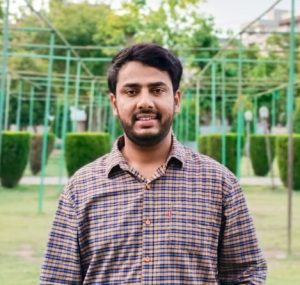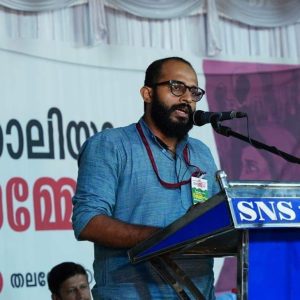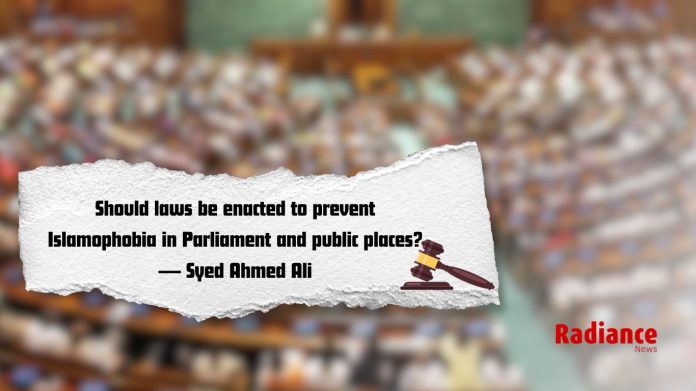
— Syed Ahmed Ali
Islamophobia has become a major concern in India, targeting Muslims has become a norm in India; hate speech and discrimination are occurring in the public sphere, which has reached Parliament. This phenomenon is becoming more alarming; even high-profile political figures, including members of parliament, are employing racial insults against minority communities. As a result, concerns have been raised regarding whether legislation should be enacted to combat Islamophobia and promote tolerance in the country. In this column, we will look at the problem of Islamophobia in India and its solutions.
 Lubaib Basheer, National General Secretary, Fraternity Movement
Lubaib Basheer, National General Secretary, Fraternity Movement
The Fraternity Movement has long advocated for criminalization of Islamophobia, similar to the SC/ST Atrocities Act. There is an urgent need for a thorough judicial investigation and legislation to combat Islamophobia in India. Muslims in the country face discrimination from both individuals and institutions through overt and subtle means. Hate speech and ethnic slurs are frequently used to marginalize and dehumanize them.
Disturbingly, Islamophobic hate speech has now infiltrated the Parliament itself. During a recent Parliament session, Ramesh Bidhuri, an MP from the Bharatiya Janata Party, targeted Danish Ali from the Bahujan Samaj Party with a racial slur. This is deeply troubling and unacceptable. Unfortunately, such incidents are not uncommon for Indian Muslims, who often endure hateful comments in public. In a morally responsible nation, such hate speech should prompt public disapproval or calls for resignation from the offending party. Regrettably, neither of these actions has been taken so far.
The fact that the question of Bidhuri’s expulsion or honor remains rhetorical is telling. Even more concerning is the indifference displayed by some former ministers who engage in wordplay, reflecting the complacency of those who support the agenda, a disturbing trend in Indian politics. This incident exemplifies a belief system aimed at targeting and marginalizing Muslims from political power.
The use of derogatory terms against Muslims, whether in social media, debates, religious gatherings, or political campaigns, perpetuates this prejudice. When Islamophobic rhetoric is present in the inaugural session of a new Parliament, it diminishes the importance of constitutional principles. Prejudice against Muslims, rooted in stereotypes related to their identity, culture, appearance, dietary choices, and more, hinders their participation in society, politics, and business. The media and political discourse often reinforces Islamophobic biases related to terrorism, hatred, and religiosity.
We strongly call for the strictest possible actions against ethnic slurs and hate speeches targeting Muslims, as these incidents continue to dehumanize the Muslim community in India.
 PV Ahamed Saju, National President, Muslim Students Federation
PV Ahamed Saju, National President, Muslim Students Federation
The incident that occurred in the Parliament was unfair and undemocratic. Parliament is a place for raising concerns, not for spreading hate messages. It is the temple of democracy and the largest seat of democracy in India. Unfortunately, we have witnessed something that has never happened in India’s history. Mr. Ramesh Bidhuri made remarks that brought shame to the house. He should be suspended from Parliament, and individuals like him should not be part of such a revered institution. People like him can potentially undermine the diverse culture of the Indian Parliament.
The Constitution guarantees freedom of religion, as enshrined in Articles 25 to 28. It is the country’s duty to protect the religious beliefs and beauties of its citizens. Based on this, a law should be enacted to prevent Islamophobia both in Parliament and in the public sphere. We have observed numerous cases where Muslims in our country have become victims of mob lynching and have been tarnished by extremist groups.
If such laws were in place, hatemongers would think twice before committing any crimes, even under the cover of darkness. Mr. Bidhuri would also have a fear of losing his position in Parliament. During the Citizenship Amendment Act (CAA) movement, extremist groups used derogatory and unparliamentary language when targeting Muslims. This is due to the lack of consequences for targeting Muslims and the absence of laws to hold them accountable for using such language. The unfortunate part is that individuals who use derogatory language have been appreciated and even honored with garlands and high-ranking positions within their political parties. Given all these circumstances, such a law is not only important but also an urgent need of the hour.




